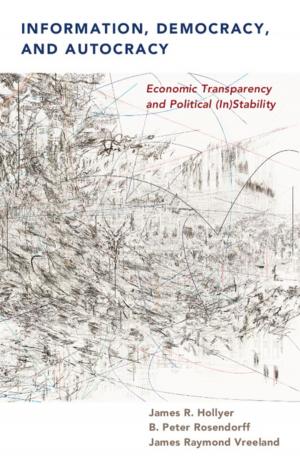Intelligence Power in Peace and War
Nonfiction, Social & Cultural Studies, Political Science, International, International Relations| Author: | Michael Herman | ISBN: | 9781107385221 |
| Publisher: | Cambridge University Press | Publication: | October 13, 1996 |
| Imprint: | Cambridge University Press | Language: | English |
| Author: | Michael Herman |
| ISBN: | 9781107385221 |
| Publisher: | Cambridge University Press |
| Publication: | October 13, 1996 |
| Imprint: | Cambridge University Press |
| Language: | English |
Intelligence services form an important but controversial part of the modern state. Drawing mainly on British and American examples, this book provides an analytic framework for understanding the 'intelligence community' and assessing its value. The author, a former senior British intelligence officer, describes intelligence activities, the purposes which the system serves, and the causes and effects of its secrecy. He considers 'intelligence failure' and how organisation and management can improve the chances of success. Using parallels with the information society and the current search for efficiency in public administration as a whole, the book explores the issues involved in deciding how much intelligence is needed and discusses the kinds of management necessary. In his conclusions Michael Herman discusses intelligence's national value in the post-Cold War world. He also argues that it has important contributions to make to international security, but that its threat-inducing activities should be kept in check.
Intelligence services form an important but controversial part of the modern state. Drawing mainly on British and American examples, this book provides an analytic framework for understanding the 'intelligence community' and assessing its value. The author, a former senior British intelligence officer, describes intelligence activities, the purposes which the system serves, and the causes and effects of its secrecy. He considers 'intelligence failure' and how organisation and management can improve the chances of success. Using parallels with the information society and the current search for efficiency in public administration as a whole, the book explores the issues involved in deciding how much intelligence is needed and discusses the kinds of management necessary. In his conclusions Michael Herman discusses intelligence's national value in the post-Cold War world. He also argues that it has important contributions to make to international security, but that its threat-inducing activities should be kept in check.















